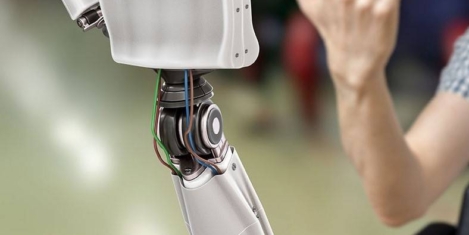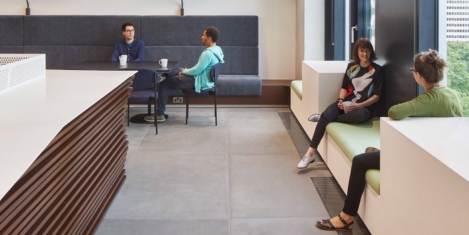March 8, 2018
UK women still feel held back by motherhood and flexible work penalty
 Four in ten (44 percent) women in the UK feel nervous about the impact starting a family might have on their career and 48 percent of new mothers felt overlooked for promotions and special projects upon their return to work. This is according to a new PwC report, launched to mark International Women’s Day, which surveyed over 3,600 professional women (293 in the UK) across different sectors to find out about their career development experiences and aspirations. The report claims that UK women still perceive a motherhood and flexibility penalty in the workplace. Over a third (36 percent) surveyed say they feel that taking advantage of work life balance and flexibility programmes has negative career consequences. The report – Time to talk: what has to change for women at work – claims that women are confident, ambitious and ready for what’s next, but many don’t trust what their employers are telling them about career development and promotion.
Four in ten (44 percent) women in the UK feel nervous about the impact starting a family might have on their career and 48 percent of new mothers felt overlooked for promotions and special projects upon their return to work. This is according to a new PwC report, launched to mark International Women’s Day, which surveyed over 3,600 professional women (293 in the UK) across different sectors to find out about their career development experiences and aspirations. The report claims that UK women still perceive a motherhood and flexibility penalty in the workplace. Over a third (36 percent) surveyed say they feel that taking advantage of work life balance and flexibility programmes has negative career consequences. The report – Time to talk: what has to change for women at work – claims that women are confident, ambitious and ready for what’s next, but many don’t trust what their employers are telling them about career development and promotion.

























 Over a third of UK employees (37 percent) have felt discriminated against in the workplace, more than one in ten (12 percent) believe they have suffered age discrimination and 8 percent feel they’ve been discriminated against due to their gender. This rises to 11 percent amongst women, claims a new study of 1,300 working adults by ADP. The study also suggests that standards and perceptions of behaviour have shifted across the generations, with those in so-called ‘Generation Snowflake’ more sensitive to unfair treatment than their more mature colleagues. According to the findings, half (50 percent) of those under 35 say they have felt discriminated against, compared to just a quarter (26 percent) of those over the age of 45. The contrast is visible across both age (15 percent vs 14 percent), gender (11 percent vs 5 percent) and other types of discrimination.
Over a third of UK employees (37 percent) have felt discriminated against in the workplace, more than one in ten (12 percent) believe they have suffered age discrimination and 8 percent feel they’ve been discriminated against due to their gender. This rises to 11 percent amongst women, claims a new study of 1,300 working adults by ADP. The study also suggests that standards and perceptions of behaviour have shifted across the generations, with those in so-called ‘Generation Snowflake’ more sensitive to unfair treatment than their more mature colleagues. According to the findings, half (50 percent) of those under 35 say they have felt discriminated against, compared to just a quarter (26 percent) of those over the age of 45. The contrast is visible across both age (15 percent vs 14 percent), gender (11 percent vs 5 percent) and other types of discrimination.










March 8, 2018
Data, AI and the commercial property sector – what’s the connection?
by Nick Riesel • Comment, Property, Technology
(more…)